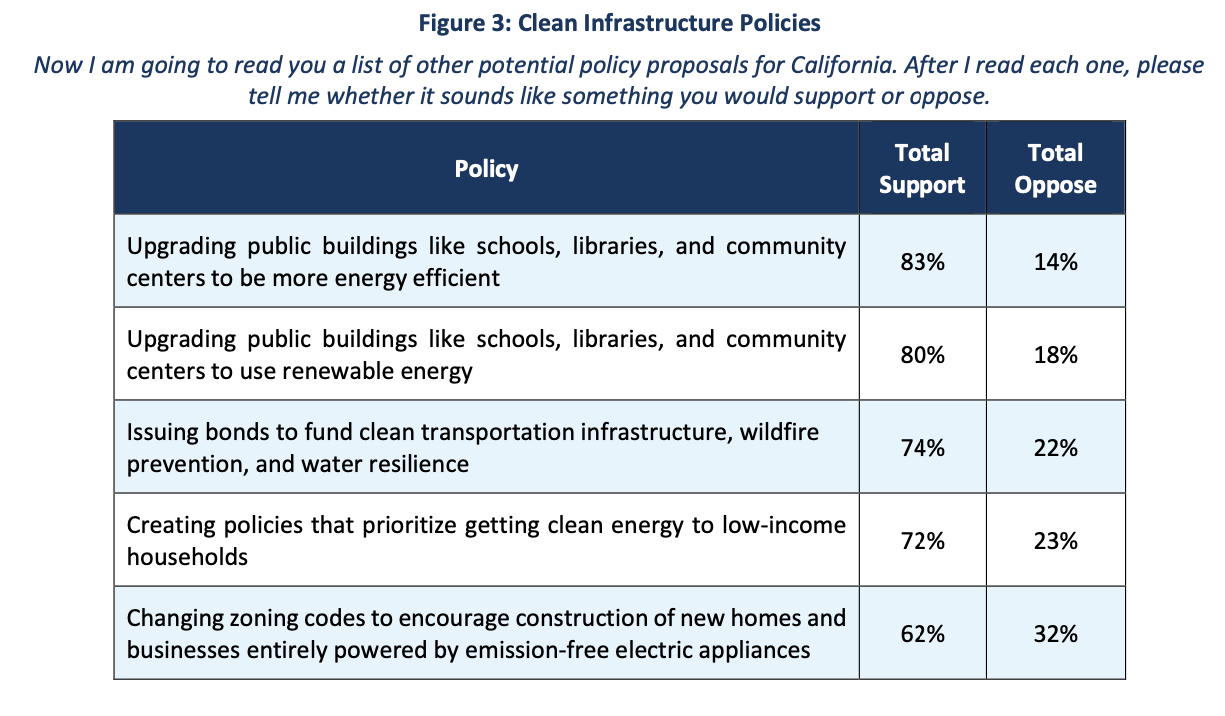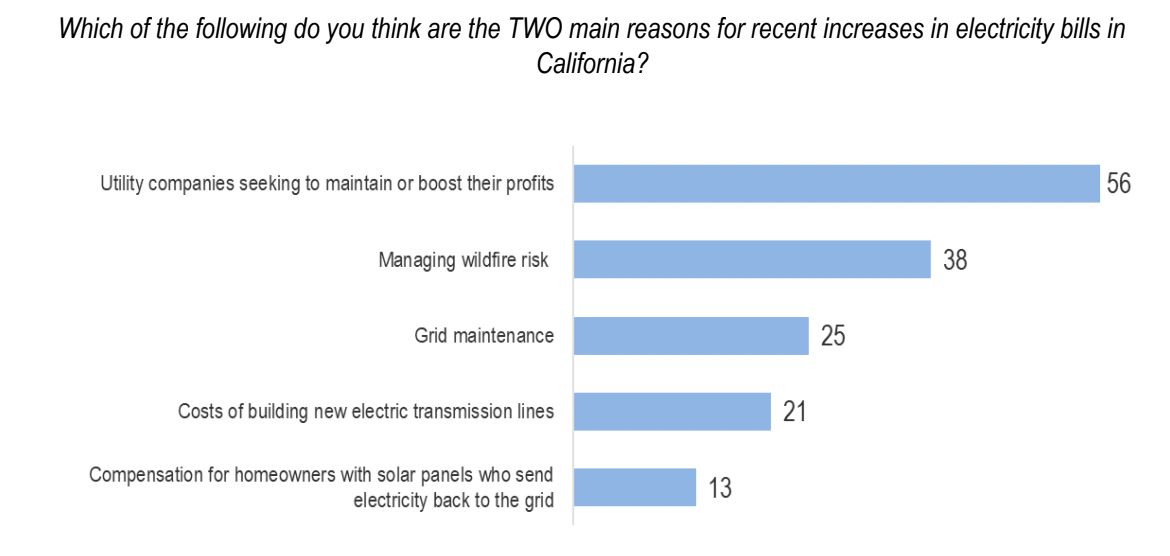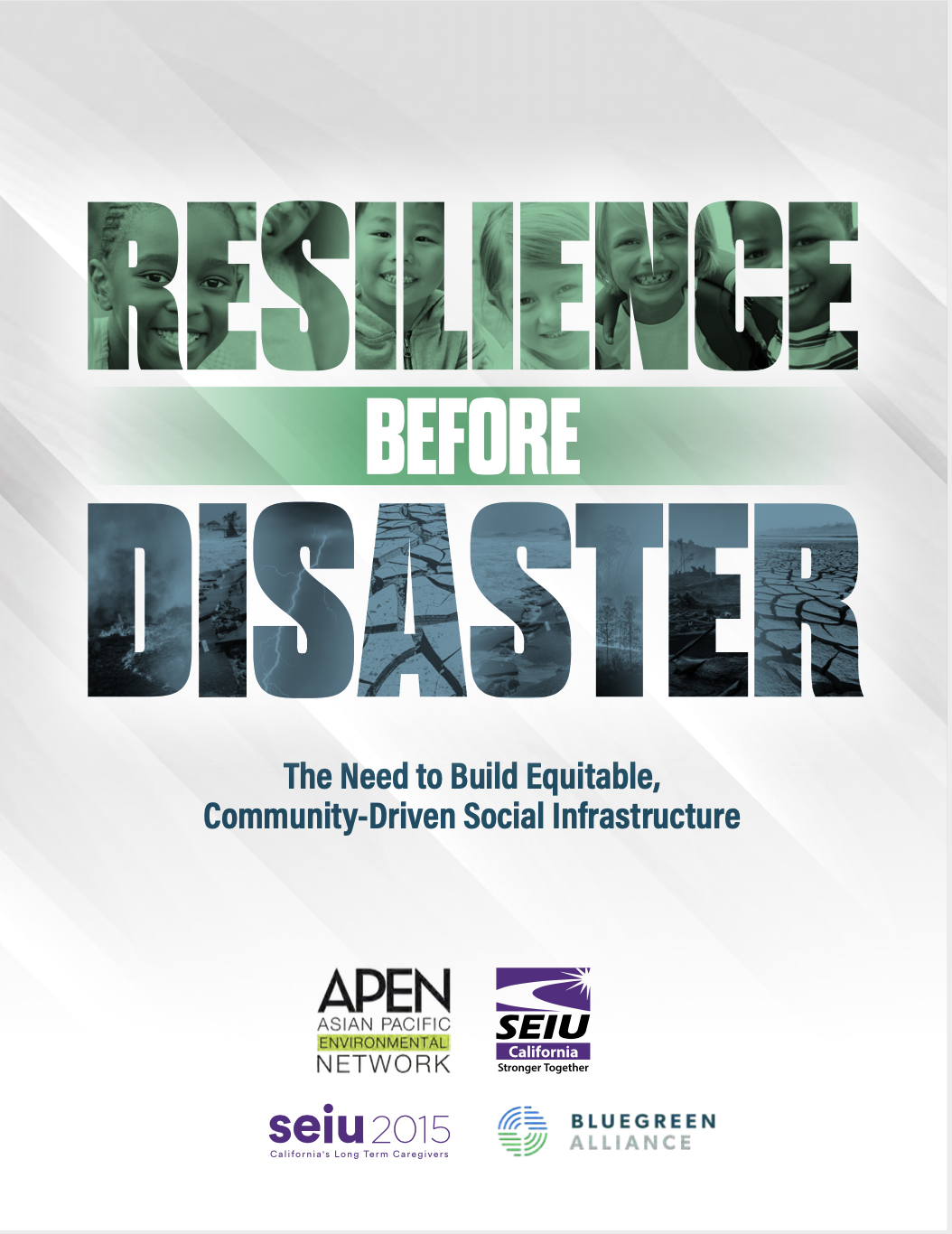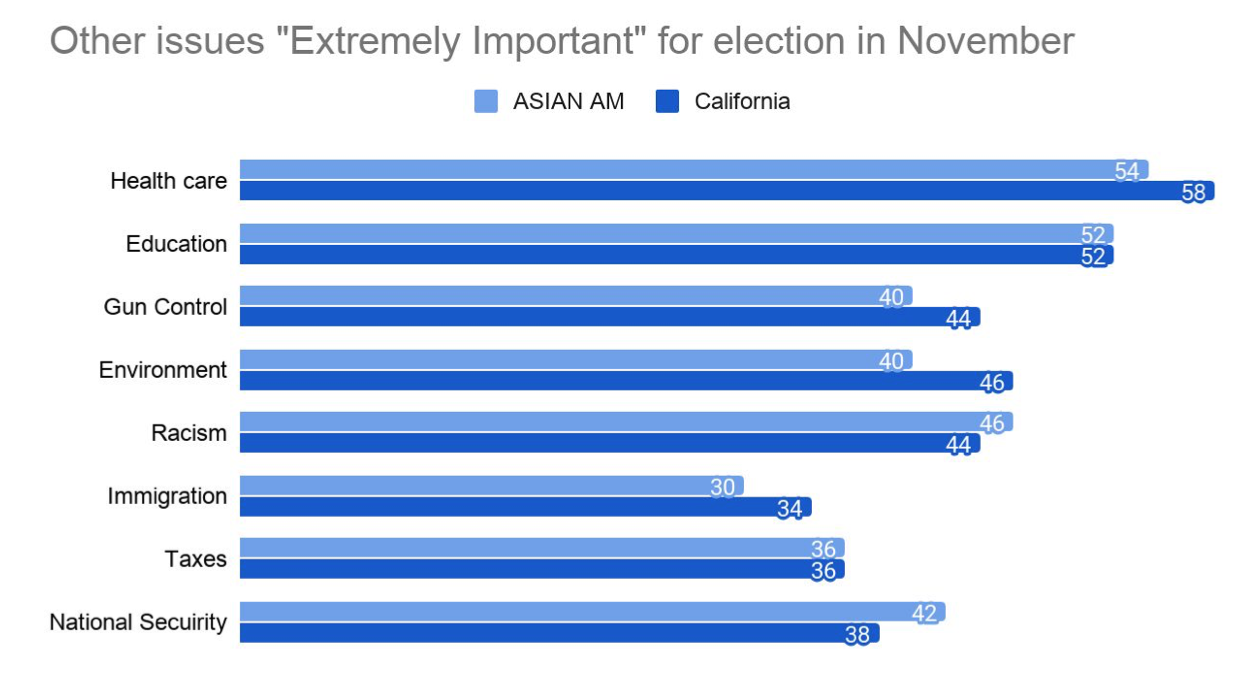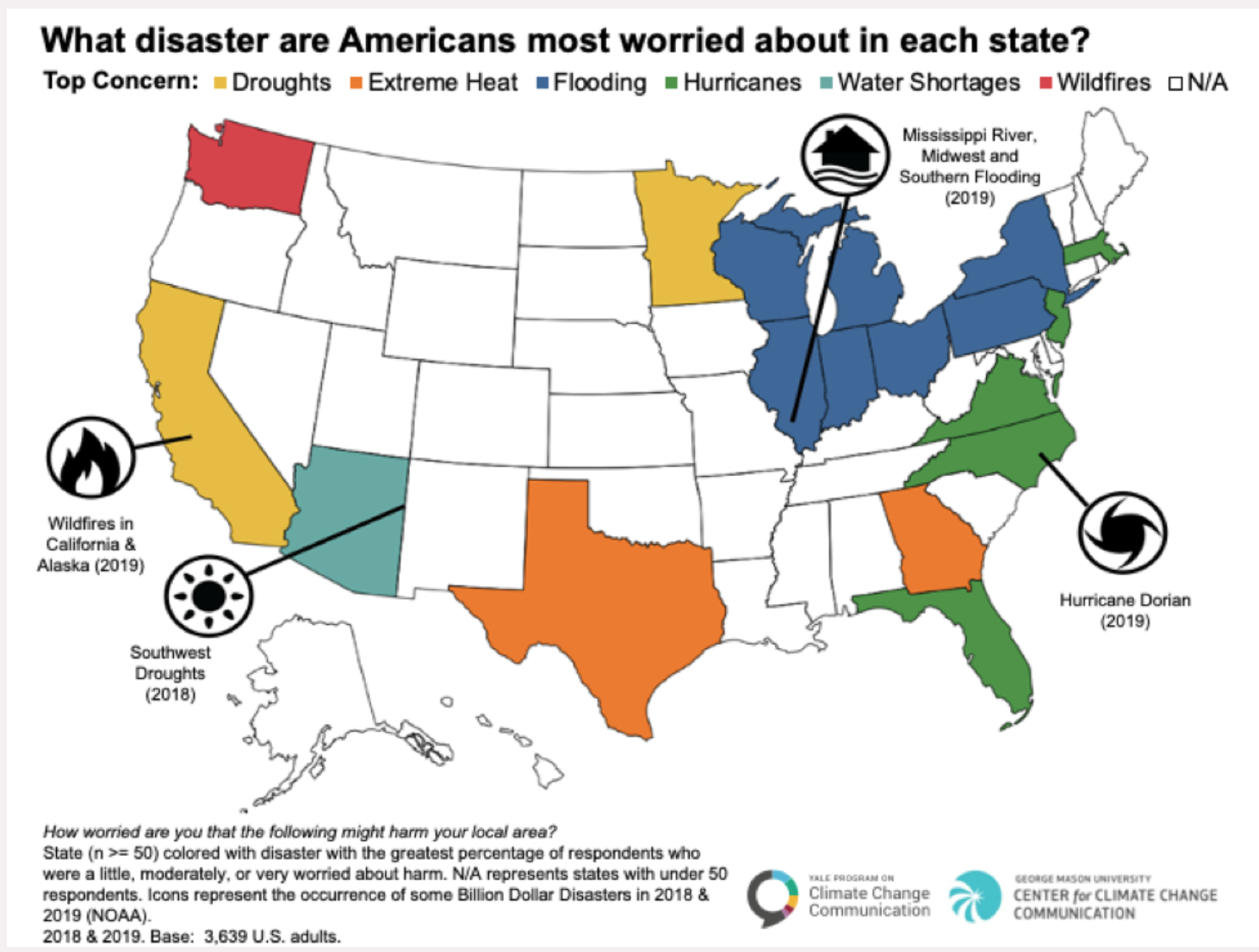Resources
Search below for resources covering the intersection of climate engagement, social science and data analytics.
RESULTS
Survey of California voters’ views on climate change, renewable energy, infrastructure, and transportation found that a majority of Californians believe the state should act more quickly to address climate change, see economic promise in renewable energy; and support a range of policies to move away from fossil fuels.
- 67% believe that the State should act quicker to address climate change.
- 75% believe climate change is an "extremely," "very," or "somewhat serious" problem facing California and 38% categorize it an “extremely serious problem”.
- A majority of Californians support a range of policies to move away from fossil fuels, including providing energy upgrades to schools, libraries, and community centers; funding clean transit infrastructure, wildlife protection, and water resilience through the issuing of bonds; and policies which bring clean energy to homes.
- A solid majority of Californians also support a variety of zero-emission transportation policies, including ones that would cut pollution near ports and warehouses and transition the state to a zero-emissions truck and bus fleet within the next 15 years.
- By an 11-point margin, voters see more harms from fossil fuel infrastructure than benefits and half of California voters (50%) say that they would be less likely to vote for their state legislator if that official took campaign funds from fossil fuel companies.
Using Virtual Reality in Sea Level Rise Planning and Community Engagement—An Overview
Consider using virtual reality to convey the reality of sea-level rise. In three coastal communities, VR simulations of sea-level rise were found to do a better job than conventional maps in helping people visualize projected impacts. Residents familiar with the locations had especially strong emotional reactions to the images shown during the simulations. This study also finds that it is important to involve local residents in the planning and promotion of virtual reality simulations of sea-level rise.
Resilience Before Disaster Interactive Webinar
This interactive webinar covered the process of how this collaboration between environmental justice and labor forces was facilitated, how they built a shared vision around resilience, a rundown of the report's key findings, and a guided activity for how to apply the report's insights to participants' local communities and organizing work.
Poll: Widespread support for California’s existing net metering policy
A large majority of Californians support existing net metering policy, and broadly oppose a proposal that reduces credits for people who contribute solar power to the electric grid.
- 71% believe the state of California should be doing more to encourage the use of solar power vs. just 14% who say it should be doing less.
- 80% of California voters support net metering (after hearing a neutral description of the policy), vs just 11% who oppose it.
- 64% of voters oppose a proposal to “reduce the credit that people who have rooftop solar receive from their local utility for any extra electricity that their rooftop solar generates and feeds back to the grid.”
- Keeping energy bills low is a priority for California voters – and they are far more likely to blame rising electricity bills on "utility companies seeking to boost or maintain their profits" (56%) and "managing wildfire risks" (38%) than anything related to solar.
Resilience Before Disaster: The Need to Build Equitable, Community-Driven Social Infrastructure
California and the US are increasingly beset by climate-fueled disasters like wildfires, extreme heat, and power blackouts. These events put additional stress on frayed hard and social infrastructure systems, and disproportionately impact working-class communities of color. To adapt to these changes, society must update our notion of disaster response to increase resilience in these systems before disasters strike. This report offers two models for this response: 1) building and normalizing resilience hubs where community members gather and organize both in good times and bad, and 2) increasing in-home resilience by recognizing homecare workers as effective agents for assisting vulnerable populations and bridging authorities and the frontlines. The report goes on to recommend specific ways to set up resilience hubs, train care workers, and develop forward-thinking emergency response plans to avert human disasters after natural disasters.
Poll: Californians see the threat of wildfire as now much more serious than in the past
- 74% of California voters believe the threat that wildfires now pose to the state is much more serious than it has been in the past. This view is shared by large majorities of voters across all major regions
- 38% feel it is highly likely that wildfires will cause serious damage to the homes in their local area within the next ten years -- including 8% who say wildfires have already caused serious damage to area homes
- 66% believe climate change is a major factor contributing to the greater number of wildfires in the state in recent years
- 54% have little confidence in government’s ability to protect their local area from the threat of wildfire
2020 Asian American Voter Survey: California
The top issues for Asian Americans in California are health care, education and the environment. 46% of Asian-Americans in California considered "Environment" an "Extremely important" voting issue for them in the 2020 election.
How does the American public perceive climate disasters?
Different parts of the country see various kinds of extreme weather as most concerning, perceptions which are largely in line with actual major disasters that have occurred in those regions. This report provides concern profiles for the 18 largest states, drawing on survey data from 2018 and 2019. Over half of Americans see such extreme weather events posting a high or moderate risk to their community in the coming decade, and two thirds see a climate link to US weather (though only a third think climate affects our weather "a lot").
Resilient Clean Energy for California
This report documents the widespread impacts of power shutoffs in California and the drawbacks of conventional solutions. Vote Solar documents the risks of relying on dirty BUGs, including deaths from carbon monoxide poisoning, hazardous air pollution, and, ironically, fire hazards.
Solar with Justice
Under-resourced communities face a disproportionate share of societal burdens and lack access to many of the benefits other communities enjoy. Participation in the solar economy can help ease these burdens and provide low-and middle-income households with economic relief.
Pagination
- Previous page
- Page 3
- Next page
